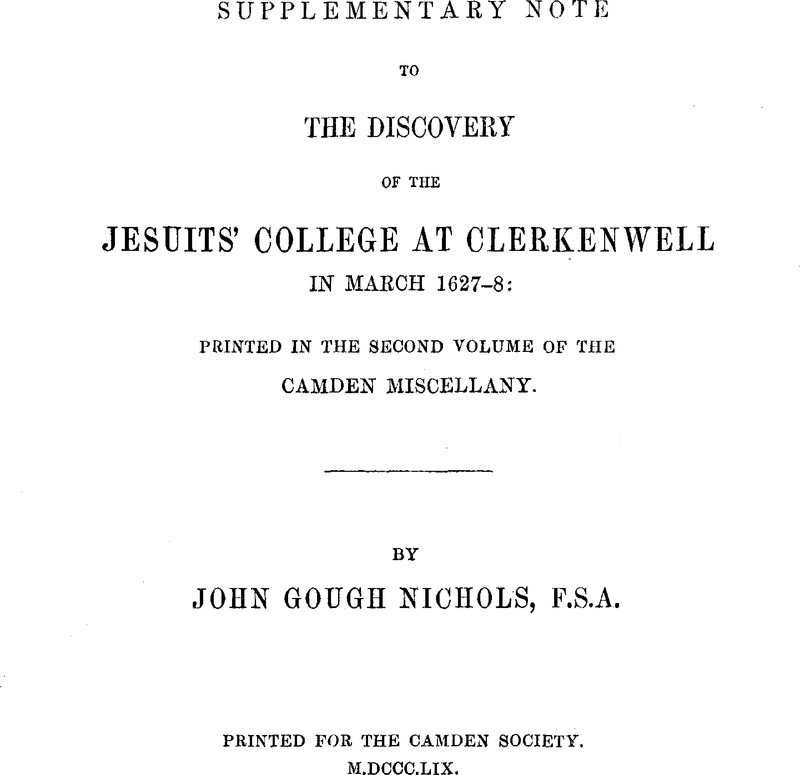No CrossRef data available.
Published online by Cambridge University Press: 23 February 2010

page 3 note a I before printed this name Cooke: in which way it was commonly written, and no doubt usually pronounced, by the Secretary's contemporaries. But it appears by his own signature that, like the great Chief Justice, (to whom he was not nearly if at all related,) he wrote his name Coke.
page 6 note ab See note in previous page.
page 9 note a See the extracts from the Privy Council Register, in Discovery, &c. p. 41.
page 9 note b “Fardinando Pulton of Lincolnes Inn, Esquire,” as he is styled in the title-pages of his books. He was a learned barrister, and appears to have been encouraged and assisted by Sir William Cordell, Master of the Rolls. His first work, An Abstract of all the Penal Statutes, was published as early as 1560; and he continued his labours in the same path, to an advanced period of life. For greater facilities in their accomplishment he took a lodging near the Record Office in the Tower, and applied to the Council for an order that the Keeper of the Records might be allowed to deliver to him the Parliament Rolls, one by one, to be used by him at his lodging. He was then (perhaps about 1611) “almost fourscore.” See Introduction to the Authentic Edition of the Statutes, vol. i. pp. xxiii. xxvii. liii.; and see a list of the titles and various editions of the works of this laborious man in Watt's Bibliotheca Britannica, voce Pulton.
page 9 note c This was done pursuant to an order of council, July 12,1628. Vide Discovery, &c. p. 42.
page 9 note d i. e. Humphrey Cross, the messenger who made the arrest.
page 10 note a Sir John Maynard, second son of Sir Henry Maynard sometime secretary to Lord Burghley, and brother to William first Lord Maynard. He was seated at Walthamstow in Essex, was made a Knight of the Bath at the coronation of Charles the First, and married a daughter of Sir Thomas Middleton an alderman of London.
page 10 note b Colonel John Dalbier, a native of the Low Countries employed in the service of England, particularly at the Isle of Rhé He was at this time engaged in enlisting foreigners to be employed in England, a matter which excited the jealousy of parliament. He was subsequently remarkable as the military instructor of Oliver Cromwell: and finally met his death with Lord Francis Villiers at Kingston.